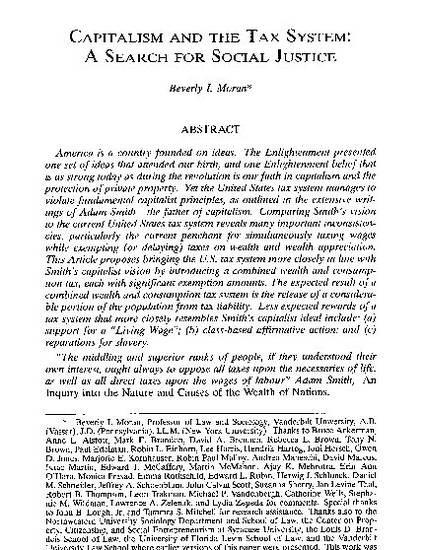
- race,
- wealth,
- discrimination,
- class
America is a country founded on ideas. The Enlightenment was one set of ideas that attended our birth and one Enlightenment belief as strong today as during the revolution is our faith in capitalism and the protection of private property. Yet, the United States tax system manages to violate fundamental capitalist principles as outlined in the extensive writings of Adam Smith - the father of capitalism. Comparing Smith's vision to the current United States tax system reveals many important inconsistencies, particularly the current penchant for simultaneously taxing wages while exempting (or delaying) taxes on wealth and wealth appreciation. The article proposes more closely aligning the U.S. tax system with Smith's capitalist vision by introducing a combined wealth and consumption tax each with significant exemption amounts. The expected result of a combined wealth and consumption tax system is the release of a considerable portion of the population from tax liability. Less expected rewards of a tax system that more closely resembles Smith's capitalist ideal include: (a) support for a living wage; (b) class based affirmative action; and, (c) reparations for slavery.
Available at: http://works.bepress.com/beverly_moran/19/
